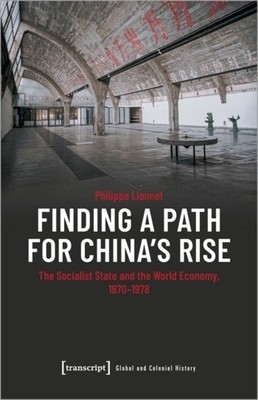
- We will send in 10–14 business days.
- Publisher: Transcript Publishing
- Year: 2022
- Pages: 440
- ISBN-10: 3837664228
- ISBN-13: 9783837664225
- Format: 17 x 24.4 x 2.4 cm, minkšti viršeliai
- Language: English
- SAVE -10% with code: EXTRA
Finding a Path for China's Rise (e-book) (used book) | bookbook.eu
Reviews
Description
The rise of China is ever-present in debates on globalisation and ongoing power shifts. In a time of rising international tensions, understanding the interdependencies between China's course and the world economy is ever more important. Often, the economic reforms under Deng Xiaoping after 1978 are emphasised. They initiated dramatic changes in China's economy and contributed to its ascent as a world power. In contrast, less attention has been given to the context in which these reforms were implemented. Philippe Lionnet analyses important adjustments in China's agricultural, industrial and foreign trade policies in the course of the 1970s as well as their origins. He shows how policy experiments and their limits shaped the path of the socialist state.
EXTRA 10 % discount with code: EXTRA
The promotion ends in 21d.19:00:29
The discount code is valid when purchasing from 10 €. Discounts do not stack.
- Publisher: Transcript Publishing
- Year: 2022
- Pages: 440
- ISBN-10: 3837664228
- ISBN-13: 9783837664225
- Format: 17 x 24.4 x 2.4 cm, minkšti viršeliai
- Language: English English
The rise of China is ever-present in debates on globalisation and ongoing power shifts. In a time of rising international tensions, understanding the interdependencies between China's course and the world economy is ever more important. Often, the economic reforms under Deng Xiaoping after 1978 are emphasised. They initiated dramatic changes in China's economy and contributed to its ascent as a world power. In contrast, less attention has been given to the context in which these reforms were implemented. Philippe Lionnet analyses important adjustments in China's agricultural, industrial and foreign trade policies in the course of the 1970s as well as their origins. He shows how policy experiments and their limits shaped the path of the socialist state.


Reviews